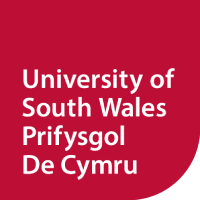About the Project
Here is an exciting opportunity to develop and apply image processing & pattern recognition techniques in an exciting and innovative way.
This is a funded MRes, including a generous stipend and tuition fees, with well-resourced circumstances for a successful scholarship.
The selected candidate will apply their technical and computational skills to develop an automated triaging system based on the Artificial Intelligence techniques associated with Natural Language Processing. This research opportunity, will allow the student to develop transferable knowledge and skills in this most exciting and active field of computational intelligence.
This Knowledge Economy Skills Scholarship (KESS) project will be held in the Faculty of Computing, Engineering and Science at the University of South Wales. KESS is a programme funded by the European Social Fund (ESF) awarded by the Welsh European Funding Office (WEFO) in the Welsh Government.
The project is backed by Young Now Limited; a young, forward looking, technology enhanced company.
Programme of research:
Young Now Ltd is a beauty consumer products company, creating and selling its own brands directly to the final consumers exclusively via online routes. Part of the company’s future marketing plans involve an AI based recommendation system that, using facial images of the customer using a mobile app, will advise on the most suitable products. The main challenges usually encountered when using image processing, for face feature pattern classification, centre on how to cope with a wide variation in the features in terms of skin colour, texture, and blemishes. These challenges are compounded when issues such as posture (the angle that the facial image was obtained at), scale (the distance the face was from the camera), facial expression, facial hair, complex backgrounds, inconsistent illumination, and other environmental conditions that come into play. Many of these challenges are well understood and ameliorating workarounds have been put in place in the commercial systems already available. However, these workarounds either significantly limit the operational use of the systems (for example, they can only be used in very controlled environments) or require significant computer power (not available on the kind of mobile devices envisaged for the product to be developed).
The MRes will focus on finding practical solutions to the problems articulated above.
Studentship:
The studentship will cover the fees for a 1-year full-time MRes programme and pay a stipend of circa £11k p.a. There is also around £3k project support costs available for consumables, travel, minor equipment, training (including the KESS Grad School) and conference attendance.
The position is available from 1st October 2018.
Eligibility of Student:
To be eligible to hold a KESS studentship, you must:
• have a home address in the Convergence area (details below)* at the time of registration.
• have the right to take up paid work in the Convergence area* on completion of the scholarship.
• be classified by the University as ‘home’ or ‘EU’ for tuition fees purposes according to the University’s guidelines.
• satisfy University of South Wales’s admissions criteria: see below, qualifications and experience and application process
*The Convergence area covers West Wales and the Valleys, and is made up of the following 15 local authorities: Isle of Anglesey, Gwynedd, Conwy, Denbighshire, Ceredigion, Pembrokeshire, Carmarthenshire, Swansea, Neath Port Talbot, Bridgend, Rhondda Cynon Taf, Merthyr Tydfil, Caerphilly, Blaenau Gwent and Torfaen.
Qualifications and experience:
Eligible applicants will:
• Have a degree (2i or higher) in an appropriate computing or mathematics based subject
• Possess a reasonable understanding of artificial intelligence techniques
• Be highly self-motivated, with capacity to design and implement new computational algorithms
• Have well-developed and positively collaborative interpersonal skills
• Have an ability to deliver technical reports and communicate findings
Application Process:
To download an application package, please visit: http://gro.southwales.ac.uk/studentships/KESSII/participant/
For any queries on eligibility, please contact: KESS Team at Research and Innovation Services, University of South Wales: [Email Address Removed] Tel: 01443 482578
For informal enquiries or further programme information, please contact: Prof. Andrew Ware. ([Email Address Removed]).
Closing date for applications: midnight Sunday 3rd June 2018
(Interviews will be held w/c 11th June 2018).

 Continue with Facebook
Continue with Facebook

